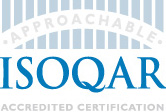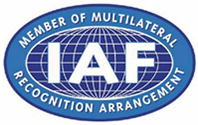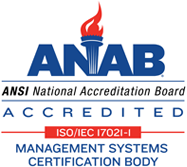AS 9100 - Aerospace
AS 9100 is the quality management standard specifically written for the aerospace industry. It had long been considered by some entities, such as the FAA, that the ISO 9000 series of standards were inadequate in terms of ensuring quality and safety in the “high risk” aerospace industry.
AS 9000, was first published in August 1997 and was written with input from a number of large aerospace prime contractors including Lockheed Martin, Northrop Grumman and GE Aircraft Engines and was written against the clauses of ISO 9001:1994.
In late 1999, the first revision of AS 9100 was published by SAE International with input from the American Aerospace Quality Group (AAQG) and support from the International Aerospace Quality Group (IAQG).
The current version of AS 9100, Revision D, aligns the standard with ISO 9001:2015 and has extra requirements regarding Regulatory Compliance and the following aerospace sector specific requirements:
• Product Safety was added in a new clause and in other areas
• Counterfeit Parts Prevention was added in a new clause and in other areas (this was already in place in the AS9110 and AS9120 standards)
• Risk clause was merged with the new ISO 9001 risk requirements along with an increased emphasis on risks in operational processes
• Awareness clause was added with reinforced requirements for awareness of individual contribution to product and service quality and safety along with ethical behavior
• Human Factors are included as a consideration in nonconformity management and corrective action
• Configuration Management was clarified and improved to address stakeholder needs
As a result, ISO 9001:2015 is totally encompassed within AS 9100 with these additional requirements applied specifically addressing aviation safety concerns. It is also the only standard which considers the role of the Regulatory Authorities and so many of the “add-ins” are directly traceable to FAA Regulations FAR Part 21 (Certification Procedures for Products and Parts), Part 39 (Airworthiness Directives) and Part 45 (Identification and Registration Marking).
However it must be remembered that AS 9100 remains complimentary to contractual and applicable law and regulations. Any business implementing an AS 9100 compliant quality system must ensure the additional requirements of their customers, regulatory agencies (FAA, EASA etc) and local, state and national laws are referenced within the systems documentation.
There are now a family of the AS 9100 Standards applicable to different areas of the aerospace industry which include the following:
AS 9101F – Quality System Assessment (the checklist corresponding to AS 9100 Rev D)
AS 9102 – Aerospace First Article Inspection Requirements
AS 9110 – Requirements for Maintenance Organizations
AS 9120 – Requirements for Stockists and Distributors
The benefits of implementing AS 9100
Implementing AS 9100 will motivate staff by defining their key roles and responsibilities. Cost savings can be made through improved efficiency and productivity, as product or service deficiencies will be highlighted. From this, improvements can be developed, resulting in less waste, inappropriate or rejected work and fewer complaints.
Customers will notice that orders are met consistently, on time and to the correct specification. This can open up the market place to increased opportunities.
An additional benefit due to the standardized processes and procedures is the reduction in multiple expectations due to the consistency in verification.
How do you start to implement AS 9100? What is involved?
- Identify the requirements of AS 9100 and how they apply to the business involved.
- Establish quality objectives and how they fit in to the operation of the business.
- Produce a documented quality policy indicating how these requirements are satisfied.
- Communicate them throughout the organization.
- Evaluate the quality policy, its stated objectives and then prioritize requirements to ensure they are met.
- Identify the boundaries of the management system and produce documented procedures as required.
- Ensure these procedures are suitable and adhered to.
- Once developed, internal audits are needed to ensure the system carries on working.
Why seek certification to AS 9100
- Registration to AS 9100 by an accredited certification body (CB) shows commitment to quality, customers, and a willingness to work towards improving efficiency.
- It demonstrates the existence of an effective quality management system that satisfies the rigours of an independent, external audit and addresses the additional safety, reliability and quality concerns specific to the aerospace industry.
- An AS 9100 certificate enhances company image in the eyes of customers, employees and shareholders alike.
- It also gives a competitive edge to an organization’s marketing.
Audit to AS 9100
Once it is believed that all the requirements of AS 9100 have been met, it is time for an external audit.
This should be carried out by a third party, ANAB accredited CB such as ISOQAR. ISOQAR will review the quality manuals and procedures. The process involves looking at the company’s evaluation of quality and ascertains if targets set for the management programme are measurable and achievable. This is followed at a later date by a full on-site audit to ensure that working practices observe the procedures and stated objectives and that appropriate records are kept. AS 9101D will be used as the assessment checklist.
After a successful audit, a certificate of registration to AS 9100 will be issued. There will then be surveillance visits (usually once or twice a year) to ensure that the system continues to work. This is covered in more detail in ISOQAR’s ‘Audit Procedure’ information sheet.
Why choose ISOQAR for your audit?
ISOQAR has an enviable record for customer satisfaction for its certification services. A friendly approach and a dislike of bureaucracy has led to unprecedented growth through referrals from contented clients. ISOQAR only employs auditors that have empathy with this approach. They are also carefully allocated by their experience in the industry they are auditing. This results in a practical, meaningful audit, carried out in an air of mutual understanding. ISOQAR firmly believes that its audits should benefit the organization that requests it, not be an intellectual exercise to ‘please’ the auditor.
What is the cost of audit to AS 9100?
For a fixed, written quotation, we require a few details regarding your organization. These can be submitted to ISOQAR via a short questionnaire provided in our information pack, by telephone at 866-947-6727, or on our website Request Quotation. Quotations are provided without any obligation.
An information pack about ISOQAR’s certification services can also be requested by telephone or from our website.
OASIS Database
It is a mandatory requirement that all companies registered to AS 9100 are entered onto a database by ISOQAR. This database is controlled by OASIS, a section of SAE, who charge $500 for each company to be added to this database. There is a subsequent charge of $500 to update information every three years following successful reassessment and issue of new certificate valid for a further three years. The database is used by aerospace manufacturers to review and source suppliers.
Where to obtain further information or help
The actual standard can be purchased from SAE (www.sae.org or tel 877-606-7323). For more information on AS9100, using the Internet for research is by far the best approach.


